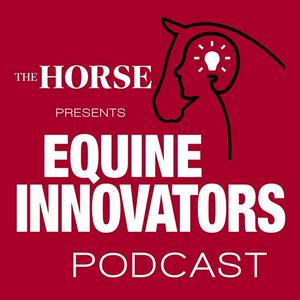Improving Joint Health in Horses with Dr. Kara Brown
Dr. Kara Brown, assistant professor of equine sports medicine and rehabilitation at the University of Pennsylvania’s New Bolton Center, describes osteoarthritis in horses, its causes, traditional treatments, and regenerative therapies such as platelet-rich plasma (PRP), stem cells, and autologous protein solution devices. She highlights recent research on these approaches, their benefits over corticosteroids, and the importance of early detection and advanced imaging in managing joint health.GUESTS AND LINKS – EPISODE 19:Host: Stephanie L. Church, editorial director at The Horse: Your Guide to Equine Health Care/TheHorse.com | @stephlchurch on InstagramLinks: Stories on orthobiologics from TheHorse.com: The State of Equine Orthobiologics, Infographic: Orthobiologic Options for Treating Horses, Research-Based Advances in Equine Orthopedic TherapiesGuest: Kara Brown, VMD, Dipl. ACVSMR, Assistant Professor of equine sports medicine and rehabilitation at the University of Pennsylvania, New Bolton Center | @newboltoncenter on Instagram and FacebookPlease visit our sponsor, who makes this podcast possible: Zoetis Equine | @zoetisequine on Instagram and FacebookResearch News Releases: Research From the University of Pennsylvania’s New Bolton Center Informs the Use of NSAIDs Alongside Regenerative Medicine Devices, Pro-Stride APS Device Shown to Offer Protection Against Synovitis in Horses , New Research Provides Clarity Around the Treatment of Equine OsteoarthritisConnect With the Host: Stephanie Church,
[email protected]